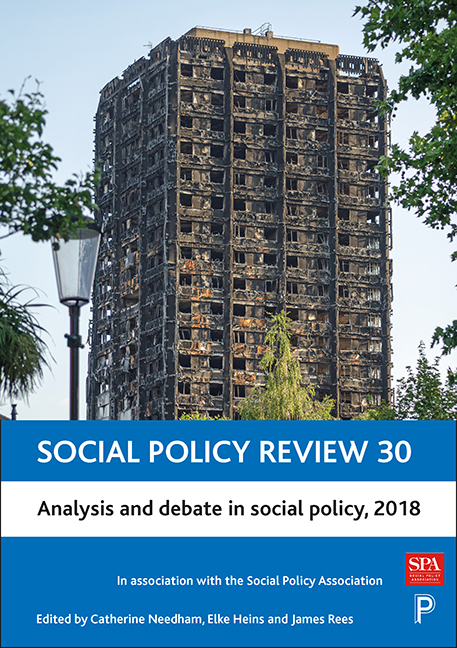Three - Childcare, life chances and social justice
Published online by Cambridge University Press: 22 April 2022
Summary
Introduction
In recent years the notion of ‘life chances’ has been moving ever closer to the centre of UK talk about social mobility and equality of opportunity. With the Welfare and Reform Act 2016, its official status was confirmed by the retrospective renaming of the Child Poverty Act 2010 as the Life Chances Act 2010. As a term it has been high on political resonance but low on definition. This chapter considers the relationship between the ‘life chances’ agenda – such as it is – and persistent questions about the relationship between childcare and social justice. ‘Childcare’ here refers to how children receive care in a general sense: not just to professional arrangements made by working parents, for example, but to the full range of ways in which children receive care, within and outside the family (Harding, 1996, pp 162-71). While ‘life chances’ (however conceived) reflect an array of factors ranging well beyond how a society arranges for the care of children, there is a strong case in favour of putting questions of childcare at the very centre of any strategy for fairer life chances.
Seen as a social justice issue, childcare can be approached from various angles – for example, in terms of gender, family autonomy and class inequalities. Each of these is vitally important to a critical understanding of how it features in social policy, and how the issues it raises might be addressed. But the chief focus here is on fairness among children themselves. There is a long-standing habit in policy circles – typified in ‘life chances’ talk – to take the future destinations of children as the yardstick for how fair their start in life has been. This chapter considers what happens when, instead, we take their childhoods themselves as the focal point, when gauging inequality between children. Looked at this way, the maldistribution of childcare in society is about the lives of children now just as much as it is about future life prospects: about childhood as ‘a stage of life, with its own value’ (CPAG, 2016, p 1).
This chapter looks first at the typical ways in which a ‘life chances’ agenda has been invoked in government strategies and ministerial speeches, and its role – as Ruth Lister has put it – as ‘something of an empty vessel’ (Lister, 2016, p 1).
- Type
- Chapter
- Information
- Social Policy Review 30Analysis and Debate in Social Policy, 2018, pp. 47 - 66Publisher: Bristol University PressPrint publication year: 2018

